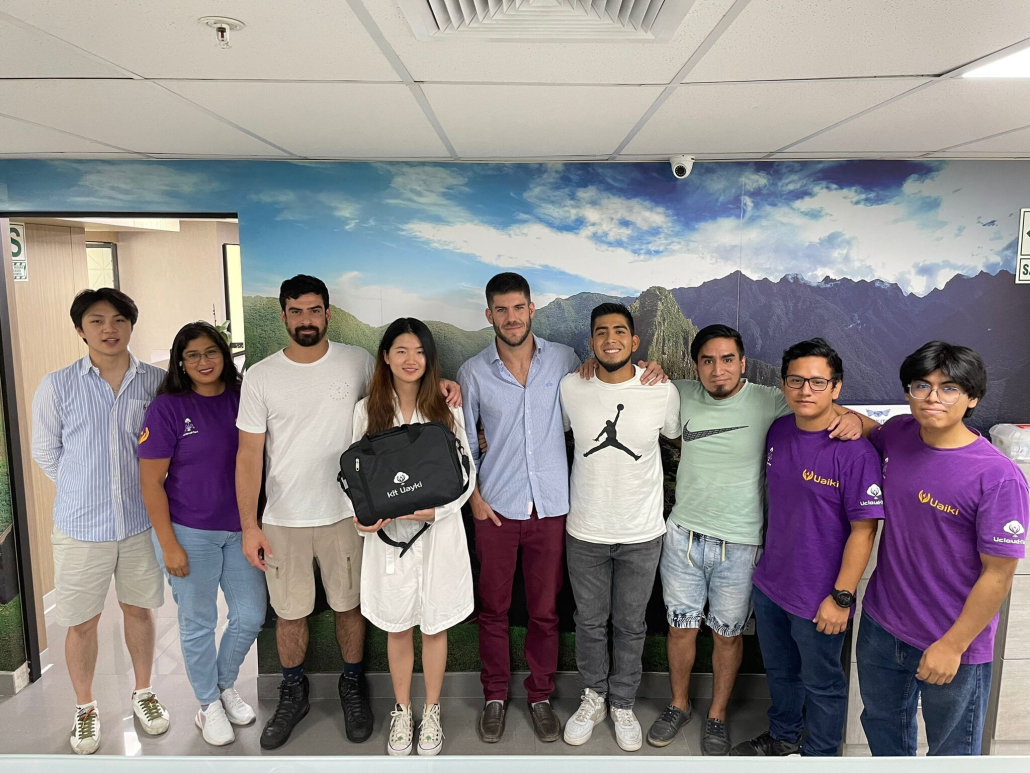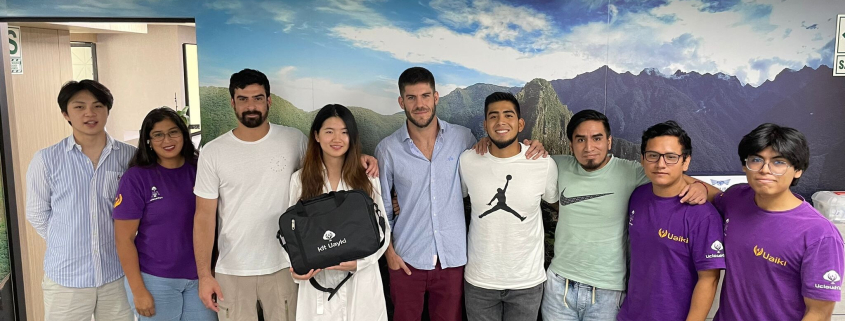Uayki brings digital access to Peruvian communities

Over 60% of rural communities in Perú do not have reliable access to the internet, creatingx a technological gap between these populations and other regions connected to digital platforms. Uayki, a Peruvian non-profit organization, aims to solve this issue by providing rural communities with access to digital platforms. The Uayki system consists of a low-cost portable kit that’s connected to an asynchronous network that hosts an ecosystem of digital platforms and content.
This semester, students on the Global Social Impact course, a class offered to students in the World Bachelor in Business, worked as a team of consultants for various non-governmental organizations or social entrepreneurs based in Lima, Perú.
Elizabeth Folkin, Joson Suen, Hazel Jin and Owen Yan were part of the team that collaborated with Uayki to expand the organization’s publicity through conducting market research on unconnected communities that have yet to receive Uayki’s services. The team also hoped to gather volunteers and donations to sustain Uayki’s cause after the end of their collaboration.
Suen, a freshman majoring in business administration, conducted market research on unconnected regions in Perú and said collaborating with Uayki was a unique opportunity to utilize his soft and hard skills and apply his knowledge in a positive way.
“Uayki is an excellent organization that combines my interests in technology and education,” Suen said. “It’s a great way to be able to make a positive change in society while also really applying our textbook, like classroom knowledge to the real world.”
Folkin, a freshman majoring in business administration, is working on spreading awareness around Uayki’s mission by connecting the organization to TedX. When reflecting on her collaboration with Uayki, Folkin found value from engaging in a new experience.
“As freshmen, it’s a pretty common thing to not have collaborated with other companies as consultants. For me, it was a great introduction to this side of business,” Folkin said.
While the team’s collaboration with Uayki was facilitated by the Global Social Impact course, Jin, a freshman majoring in business administration, who led the benchmark analysis of Uayki’s competitors, said she encountered some challenges during the process of working with the organization.
“Perú’s official national language is Spanish, so we are not able to directly communicate with local communities,” Jin said. “We are working on this international collaboration by using our English abilities to help translate Uayki’s website into English and reach a broader audience internationally,”
Suen said their collaboration with Uayki was a part of “cultural learning.”
“This experience is a great process of cultural learning, whether directly through Uayki or the speakers that are sometimes invited to present to our class,” Suen said. “We’ve definitely learned a lot about Perú and Latin America because that is personally a continent that I have little to no exposure to.”
Uayki has distributed kits across 45 various locations, which allows rural communities to freely access digital platforms from any device. The company now has the opportunity to become technological suppliers for one of the United Nations’ programs, which Folkin said made overcoming challenges during this collaboration worth it in the end.
“At one point, it seemed like we were doing a lot and it was kind of overwhelming,” Folkin said. “But if we take a step back and look at all the different things that we have done, I think that’s the moment when I was like ‘oh wow we actually as students are able to do this.’”
Although the team’s project with Uayki is coming to an end, they have learned morals and values that could be localized toward the USC community.
“Empathy is something that has been really important in making Uayki’s services successful,” Suen said “It’s really important to understand their problem as a means to ultimately be able to best address their issue.”

